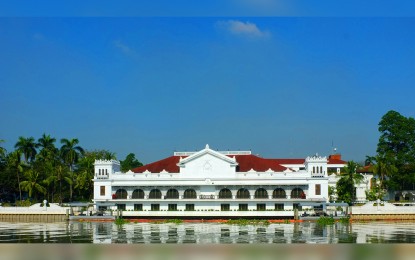
MANILA – Malacañang on Thursday reminded Japan of international environmental law after the East Asian nation announced its plan to release huge amounts of contaminated water from the destroyed Fukushima nuclear plant into the sea.
Presidential Spokesperson Harry Roque said countries that fail to control pollution and the depletion of natural resources will be meted out with appropriate actions.
“I can only repeat the principles of international environmental law that I hope all countries will comply with. First principle is that we are one eco-system, second principle is we are interconnected, and the third principle is that the polluter must pay,” Roque said in a virtual press briefing.
On Tuesday, the Japanese announced that it will release more than 1 million tons of contaminated water that have built up at the wrecked Fukushima plant after treatment and dilution.
This amount of water is enough to fill 500 Olympic-sized swimming pools.
The first release of water used will begin in about two years to allow filtering of the water to remove harmful isotopes, build infrastructure and acquire regulatory approval.
Japan described the water release as necessary to push through with the complex decommissioning of the plant after it was crippled by a 2011 earthquake and tsunami.
Japan's neighbors in Asia such as China and South Korea have opposed the plan to release Fukushima plant water into the ocean.
China denounced the plan as “extremely irresponsible”, warning that the move will seriously damage international public health and safety, and the vital interests of people in neighboring countries.
“We strongly urge the Japanese side to face up to its responsibility, follow the science, fulfill its international obligations and duly respond to the serious concerns of the international community, neighboring countries, and its own people," the Chinese foreign ministry said in a statement on its website.
South Korea expressed "strong regret" over Japan's decision, summoning Koichi Aiboshi, Tokyo's ambassador in Seoul to protest the move.
“The decision can never be accepted and would not only cause danger to the safety and maritime environment of neighboring countries, it was also made unilaterally without sufficient consultations with our country, which is the closest neighbor to Japan," South Korea's office of government policy coordination said in a statement.
South Korean President Moon Jae-in ordered officials to explore petitioning an international court over Japan's decision amid protests by fisheries and environmental groups.
"I cannot but say that there are many concerns here about the decision as a country that is geographically closest and shares the sea with Japan," Moon said. (PNA)
